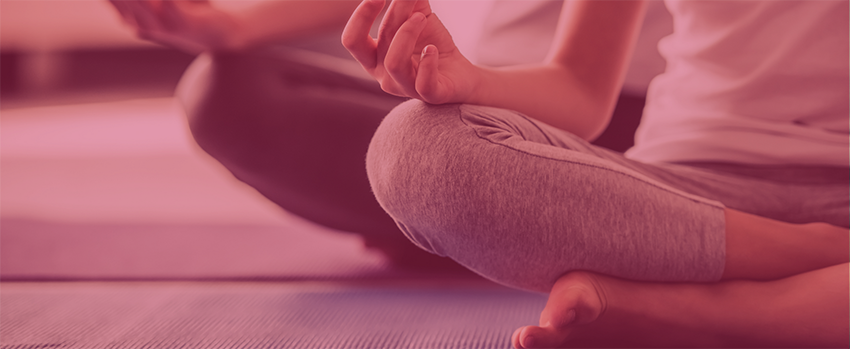Manage Your Stress

The Student Recreation Center offers free, in person yoga classes to strengthen your mind, body, and spirit. Join today by clicking here. Classes are listed below. Employees that aren't members can purchase a day pass at the front desk of the Student Recreation Center for $5/day. All yoga classes are held in Studio 2 (Room 307) in the Student Recreation Center.
Yoga Class Schedule - Summer 2023
FAQ
Our state of mind affects our attitude, clarity of mind and ability to make decisions, staying focused on the job, enjoying time with friends and family, and every aspect of our life. It is hard to achieve all of these with a wandering mind. Mindfulness is paying attention in a particular way: on purpose, in the present moment, and nonjudgmentally. The more present we are in this manner in our lives, the more fully we can appreciate and enjoy life, personally and professionally.
- Study after study has shown that mindfulness decreases heart rate, lowers blood pressure and even may extend life span and decrease age-related effects (increases the length of telomeres which are protective caps on the ends of our chromosomes that deteriorate as we age).
- Mindfulness practice changes the brain structure: increases the gray matter in specific areas and helps build new nerve connections. Long term meditators were found to have increased gray matter in their frontal lobes (center for decision making and executive functioning in our lives). The amygdala, or center of emotional reactivity, was shown to decrease in size. The amygdala governs the “fight or flight,” or sympathetic response in the body. In the Stone Age, when we were hunters or gatherers, this response was evolutionarily advantageous in being able to see the threats and dangers in our environment, so that when a tiger was around our heart rate would increase and our blood pressure would rise to prepare us to run away from the threat. Nowadays there is no tiger but the brain reacts the same way to other stressors of modern life. Practice of mindfulness also improves memory and the ability to resist distraction. Mindfulness practice is beneficial in preventing cognitive decline.
- Mindfulness activates the parasympathetic, or “rest and relaxation” response and effectively decreases the level of cortisol (stress hormone).
Mindfulness is paying attention in a particular way: on purpose, in the present moment, and nonjudgmentally. It is being aware of the present moment. Formal sitting meditation is one of the ways to practice mindfulness. There are other ways to practice mindfulness such as yoga, breathwork, journaling, tai chi, mindful walking.
- Yes
- Check out 12 scientific based benefits of mindfulness and the research behind it https://www.healthline.com/nutrition/12-benefits-of-meditation
- Mindfulness is about staying in the present moment and learning to pay attention to the state of the body and the mind. It is not a religion or a dogma. In fact, all religions use contemplative practices as part of their prayer. Meditation is just one of the ways to practice mindfulness.
- Just like a snow globe, when it is snowy, you cannot see clearly the picture underneath, but if you put the snow globe down and let it settle you will see clearly, it is a couple dancing etc. Similarly, mindfulness practice allows the mind to settle and provide clarity to our thinking which helps in better decision–making.
- Join a class, download an app or watch a guided mindfulness practice on youtube.
- Practicing in group is more helpful in staying with a regular practice. Check out the ‘Mindfulness Events’ tab and let’s get started today!
- Begin wherever you are at. Taking 5 long breaths now and just noticing your surroundings and any feelings in your body. If you notice your mind wandering gently bring it back to your breath. Allow your thoughts to pass by like clouds in the sky and just gently bring your attention back to the rise and fall of your breath.
- Scientific studies have shown that 20 minutes of daily practice for 8 weeks produce structural changes in the brain.
- Even several seconds of mindfulness can be beneficial and you might just start with a 1 minute breath practice each day, or becoming mindful of 1 activity per day. Find a quieter time in your day, maybe first thing in the morning, or at the end of your lunch break, silence your phone and just be.
- Children are especially gifted at mindfulness as they have less clutter and things to worry about in their lives. However children have shorter attention spans. A good rule of thumb is that children can meditate for about the same number of minutes as their age.
- It is nice to make it fun for children, such as visualization of ice cream, their favorite dessert, belly breathing, rewarding them after mindfulness practice.
Leadership requires emotional intelligence, decision-making, creativity – all of these are helped with meditation.
